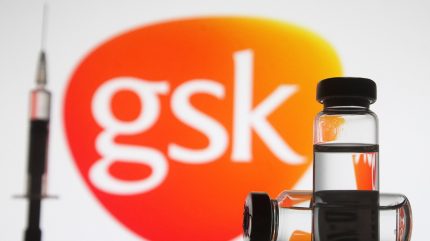
GSK has licensed altSonflex1-2-3, its Shigella vaccine candidate, to Bharat Biotech for continued development and distribution in low and middle-income nations.
The vaccine, leveraging generalised modules for membrane antigens (GMMA) technology, has shown promise in clinical trials, meeting pre-set immunogenicity success criteria.

Discover B2B Marketing That Performs
Combine business intelligence and editorial excellence to reach engaged professionals across 36 leading media platforms.
The agreement marks a significant step in the fight against diarrhoeal diseases in these countries, where Shigella remains a primary bacterial cause.
Discovered and developed by GSK’s global health team scientists, the GMMA technology is a low-cost platform ideal for creating vaccines in resource-limited settings.
The technology utilises outer membrane vesicles (OMVs) to deliver antigens, often eliminating the need for adjuvants while triggering the immune response.
By reducing illness and mortality, the Shigella vaccine could also indirectly lessen the consumption of antibiotics and combat the rise of antimicrobial resistance (AMR).

US Tariffs are shifting - will you react or anticipate?
Don’t let policy changes catch you off guard. Stay proactive with real-time data and expert analysis.
By GlobalDataThe GSK-Bharat Biotech partnership includes support for the design of the Phase III trial and assistance in securing external funding.
The partnership strengthens GSK’s current relationship with the Indian company, which began with a product transfer and licence agreement in 2021 for the malaria vaccine, RTS,S.
GSK chief global health officer Thomas Breuer stated: “With young children in lower-income countries disproportionately impacted by Shigella, the development of a low-cost vaccine is an important goal for global public health. With no licensed vaccines widely available, the development of our Shigella vaccine candidate, which has demonstrated promising clinical trial results, fills us with immense pride.
“This agreement allows us to combine our strengths in science, research and technology with Bharat Biotech’s capacity to develop and deliver vaccines at scale, potentially preventing illness and saving lives around the world.”
Shigellosis, caused by Gram-negative Shigella, leads to severe intestinal infection with symptoms of diarrhoea, fever and abdominal pain.
GSK previously received US Food and Drug Administration approval for Nucala (mepolizumab) as an add-on maintenance treatment for adults with chronic obstructive pulmonary disease that is inadequately controlled, and an eosinophilic phenotype.




